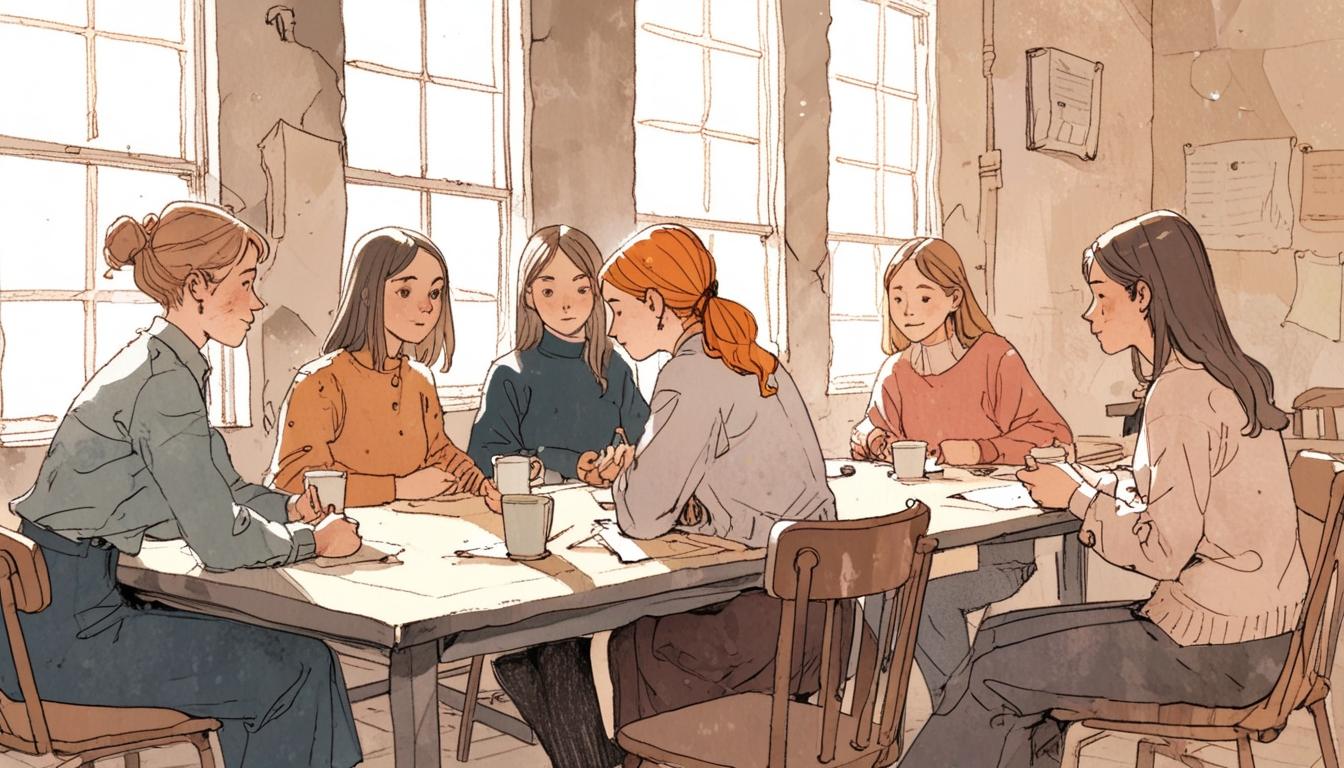When six young women convened at a Quaker meeting house in central London to discuss the climate crisis and the war in Gaza, they gathered in a space imbued with centuries of advocacy for social justice and peaceful protest. The scene was intimate, complete with cups of jasmine tea and a selection of vegan snacks. However, this seemingly innocuous meeting was abruptly disrupted by an aggressive police raid that has ignited widespread condemnation and raised critical questions about policing in the UK.
The group, affiliated with the protest organisation Youth Demand, found their discussions shattered by the sudden intrusion of up to 30 officers from the Metropolitan Police, many armed with stun guns. This intensified response was spurred by what authorities described as “intelligence-led” actions, leading to the women being arrested on suspicion of conspiracy to cause public nuisance. Five of the women remain under investigation.
Zahra Ali, the youngest of the group at just 18 years old, recounted her harrowing experience: “I was taken to a freezing cold cell for hours… We saw the blue lights a second before they marched in. We were just a bunch of young people talking about our government, about protesting.” Discussions on topics like the 1963 Children’s March in Birmingham had been ongoing when the harsh reality of law enforcement shattered the evening.
The proceedings of the police raid have been met with fervent criticism from various quarters, including religious and political leaders. Paul Parker, the recording clerk for Quakers in Britain, noted that no one had been arrested at a Quaker meeting house in living memory, labelling the police's heavy-handed approach as a significant violation of a sacred space. The Quakers have condemned the raid as an unwarranted aggressive intrusion, highlighting broader concerns over the erosion of the right to peaceful protest in the UK.
Youth Demand emerged as a vocal advocate for climate and social justice shortly after its establishment in January 2024, participating in various high-profile protests including actions that led to multiple arrests. Their demand for an arms embargo on Israel, coupled with their calls to halt new fossil fuel projects, have prompted contentious reactions from authorities. The group had publicly declared intentions to disrupt London as part of their activism, and some officers reportedly expressed concerns over the potential for the meeting to escalate to significant public disturbance.
Mal Woolford, an elder of the Westminster Quaker Meeting, described the incident as absurdly heavy-handed, suggesting that had the police exercised discretion and simply attended the meeting, understanding its nature, they would not have felt compelled to act so violently. His comments reflected a broader concern that all too often, police procedures seem more aligned with a pre-emptive strike against potential protest rather than upholding civil liberties.
In the political realm, the responses have been equally pronounced. Carla Denyer, co-leader of the Green Party and self-identified as a non-theist Quaker, participated in a vigil outside New Scotland Yard to protest the police action. She correlates this incident to a wider pattern of stifling peaceful assembly in the UK, a sentiment echoed by her party colleague Jenny Jones, who described the police actions as “absolutely outrageous.”
The Metropolitan Police, in response to the backlash, stated that they fully recognise the significance of the right to protest but maintain that they bear responsibility for preventing activities that could escalate into serious disruption. This juxtaposition raises uncomfortable questions about the thresholds for intervention and the balance of public safety against the right to assemble.
As responses to the incident continue to evolve, the implications for the future of protest in the UK remain dire. Denyer framed the raid as setting a “very worrying” precedent, emphasising the historical resonance of such actions against the Quaker community. “When the government are after the Quakers, you know you’re in trouble,” she remarked, encapsulating the ongoing anxieties around civil liberties in a rapidly changing political landscape. The events at the Westminster Meeting House have undeniably become a focal point for discussions about the balance between policing, protest rights, and the sanctity of spaces dedicated to peaceful dialogue.
Reference Map
- Paragraph 1: (1)
- Paragraph 2: (1), (2)
- Paragraph 3: (1), (2), (3)
- Paragraph 4: (1), (4)
- Paragraph 5: (1), (5)
- Paragraph 6: (1), (6)
- Paragraph 7: (1), (2)
- Paragraph 8: (1), (2), (5)
- Paragraph 9: (1), (3)
- Paragraph 10: (1)
Source: Noah Wire Services
